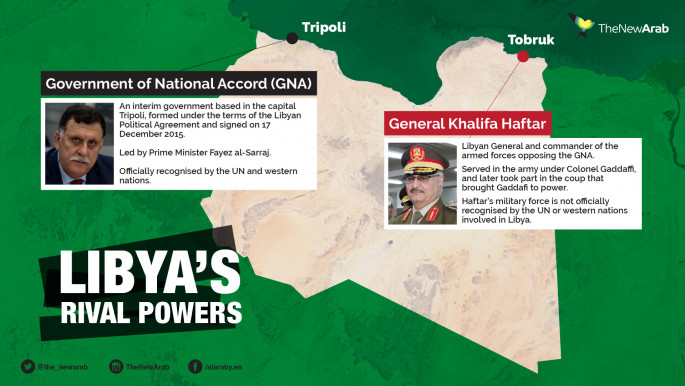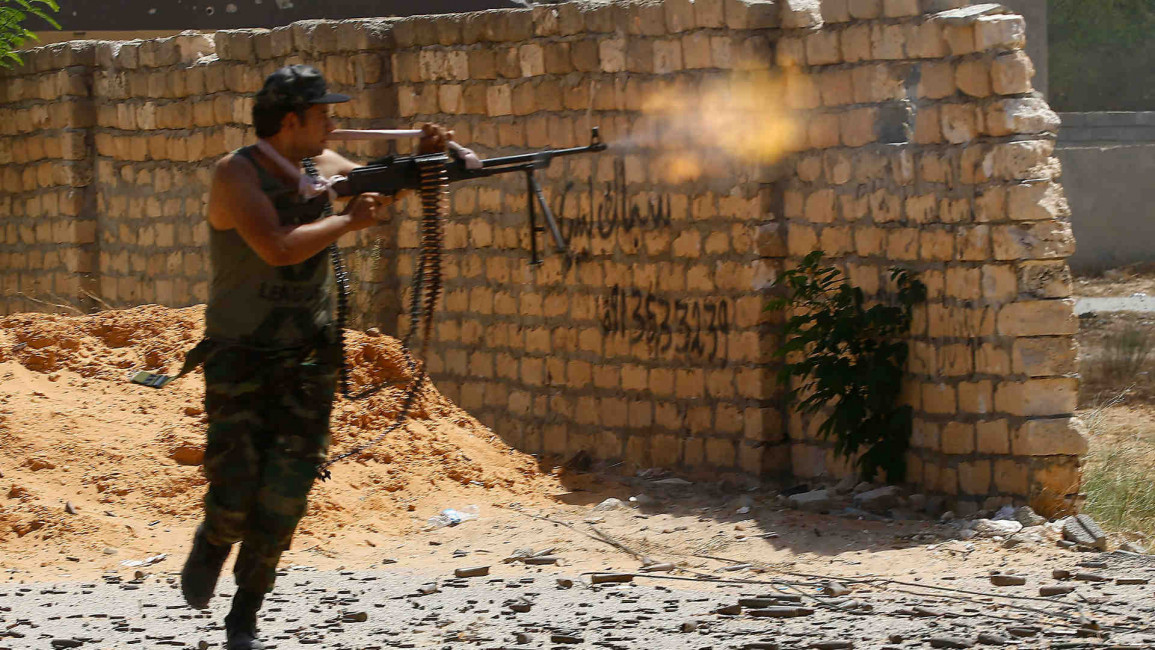US officials meet with Libya warlord Khalifa Haftar to end Tripoli offensive
Senior US officials met with Libyan rogue General Khalifa Haftar Monday to discuss steps toward ending his offensive on Tripoli, and accused Russia of exploiting the conflict, the State Department said.
The delegation, which included the US ambassador to Libya Richard Norland, aimed to establish "steps to achieve a suspension of hostilities and a political resolution to the Libyan conflict", the statement read.
The officials underscored full US "support for the sovereignty and territorial integrity of Libya and expressed serious concern over Russia's exploitation of the conflict at the expense of the Libyan people".
The discussions built on talks held by a delegation from Libya's fledgling unity government in Washington earlier this month.
"These include concrete efforts to address militias and extremist elements, and the distribution of resources so they benefit all Libyans," the statement said.
Haftar in April launched an offensive to seize Tripoli that has killed more than 1,000 people.
|
Russian mercenaries have been reported to be fighting on the side of Haftar's self-styled Libyan National Army.
The New York Times reported earlier in November that the fighters were believed to be controlled by an ally of President Vladimir Putin, an allegation denied by Moscow.
Washington first accused Russia of exploiting the conflict in Libya after the 14 November meeting with Libyan unity government representatives.
Western powers have sent mixed signals with France and Italy welcoming Haftar for visits. Trump, after a phone call with Haftar, hailed his role in "fighting terrorism and securing Libya's oil resources".
But the United States later distanced itself from Haftar and joined calls for a ceasefire.
Haftar enjoys strong support from Saudi Arabia, Egypt and the UAE, which appreciate his opposition to the Muslim Brotherhood, the broad Islamist movement across the Arab world.
Libya has been mired in chaos since a NATO-backed uprising that toppled and killed dictator Muammar Gaddafi in 2011.
Read more: The ICC should indict Haftar for war crimes
Since 2015, Libya has been divided between two governments, an internationally-recognised one based in Tripoli and another dominated by Haftar in the country’s east. Forces loyal to Haftar have been trying to wrest control of the capital since April.
Faced with a standoff, the two sides have turned to sophisticated weaponry in the hope of gaining an advantage in a battle that has killed over 1,000, injured close to 6,000 and forced 120,000 people from their homes, according to UN figures.
 |
Follow us on Twitter and Instagram to stay connected



